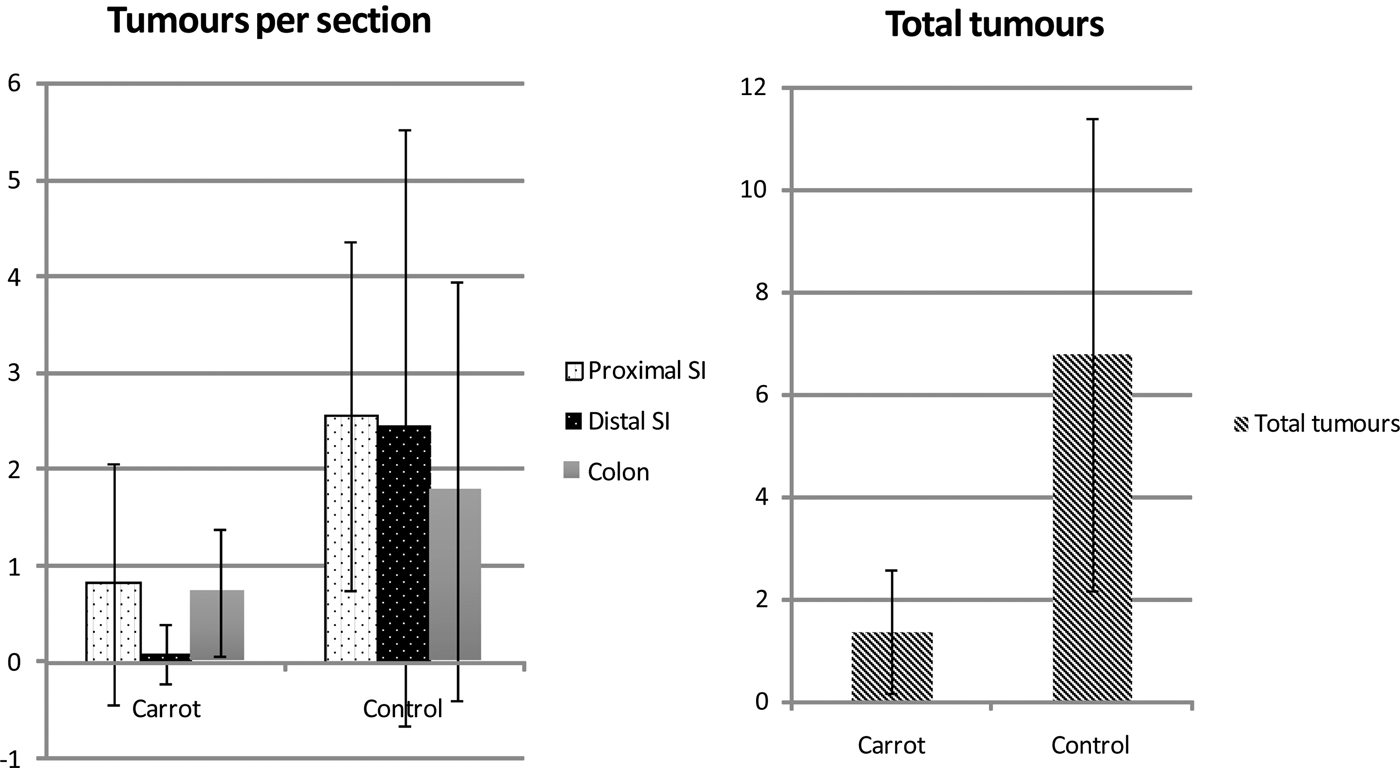Carrot contains several types of potentially beneficial bioactive compounds such as polyacetylenes, polyphenols and carotenes( Reference Zaini, Brandt, Clench and LeMaitre 1 ). Mice with the APCMin mutation are a common model of cancer in the small intestine and colon, to study the role of diet on tumours( Reference Tamariello and Milner 2 ). A previous study showed a substantial reduction in number of visible tumours when mice were fed carrot-supplemented diet throughout their lifetime (including in utero)( Reference Saleh, Garti, Carroll and Brandt 3 ). The main aim of the study was to investigate if the active substances in carrot would be able to reduce the growth of intestinal tumours in APCMin mice when the carrot treatment was started only after the fifth week (after weaning). After weaning at five weeks, the mice were genotyped and divided into different groups. Each group received powdered feed containing either 20 % freeze-dried carrot powder or control (standard mouse) diet for 10 weeks before killing. The mice were autopsied and tumours >1 mm in diameter were counted in 3 sections of the digestive tract: Proximal small intestine, Distal small intestine and Colon.

Fig. 1. Tumours per section (left), and Total number of tumours (right) at 15 weeks in APCMin mice feed control (N = 9) or 20 % carrot powder diet (N = 11) for 10 weeks. Error bars show Standard Deviation.
Feeding mice a diet containing 20 % powdered carrots dramatically reduced the number of tumours (P = 0·007), with no differences between sections of the intestine (Fig. 1). As for the weight of the mice, there were no significant differences between carrot or control feeding (P = 0·492). This result indicates the possibility of using carrots in the diet or bioactive compounds derived from them to reduce the growth of tumours.



